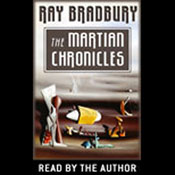Last Thursday I saw The Da Vinci Code for the second time. I hardly ever see movies at the theater any more, so that alone should tell you how much I liked it. It's very well done and follows the book closely. The cast and directing are excellent and Sir Ian McKellan (as Sir Leigh Teabing) nearly steals the show!
I've asked a couple of friends who have seen the movie but haven't read the book if they had any trouble following the plot. They did not, but of course it's even more fun it you have read the book.
Speaking of the book, here is my two cents: I don't know why people are so worked up over a book of fiction. Everywhere I look churches are having meetings to discuss The Da Vinci Code. I'd feel better if I thought they were actually reading it and making up their own minds, but I suspect that (like my aunt's church) it's just the minister telling his congregation why they shouldn't read such heratical lies.
They are missing two crucial points: 1. It's a work of fiction, and 2. Just because Dan Brown wrote it does not mean that he believes it or that he is promoting the destruction of Christianity (as some Evangelical denominations and Catholics seem to think).
How do I know it's fiction? Duh. It's in the fiction section in the bookstore. If it were real it would be in the religion or history section. Also, take a look at the copyright page (on the back of the title page). The keywords section lists the book as fiction; it also includes the usual disclaimer that "All of the characters in this book are fictious, and any resemblance to actual persons, living or dead, is entirely coincidental."
What about the "Facts" page at the beginning of the book? Well, those facts are basically true. There was a Priory of Scion in 1099, Opus Dei does exist, and Brown describes the architecture of the settings well. Other than that, assume any details are fiction.
The "Facts" page is a way to get the reader's attention. It's no different than the author claiming to have found the enclosed manuscript under mysterious circumstances (or inherited it or whatever) and publishing it. This is just the author having fun with the reader by pretending that the characters and events are real, but that doesn't mean they are real.
For example, two of my favorite mystery authors, Laurie King and Elizabeth Peters, use this technique in their popular series. Does this mean readers think Sherlock Holmes, Mary Russell, Radcliff Emerson, and Amelia Peabody were real? Heck no! We know it's just good, wholesome fun and enjoy it.
Maybe average readers of The Da Vinci Code don't recognize this literary technique because they don't read much. They pick up the book because they've heard so much about it and assume it's all true, and overlooking the fact that it's in the fiction section.
The thing that makes The Da Vinci Code so controversial and such a best-seller is the inclusion of a theory about Jesus. One of Dan Brown's previous books, Angels and Demons, is similar to The Da Vinci Code and is about a cover-up by the Vatican. It's very good but not nearly as controversial as The Da Vinci Code. Why not? No radical Jesus theory. Throw in a controversial theory about Jesus and you've got an instant best-seller. (Remember the movie The Last Temptation of Christ?)
The irony is that the main thing some people object to in The Da Vinci Code, the idea that Jesus and Mary Magdalene married and had a child, isn't even Dan Brown's idea! He even explains in the text that it comes from Holy Blood, Holy Grail (by Michael Baigent and Richard Leigh, who sued Brown and lost). Their book sold well but wasn't an international cultural phenomena like Brown's. Why? Probably because it's in the non-fiction section. (It probably should be in the fiction section since serious Biblical scholars and historians don't see it as a reliable source. I haven't read it, so I personally can't vouch for it one way or the other.)
The Da Vinci Code should be read for what it is: an interesting, entertaining, and well-written thriller. I enjoy it for those reasons but I also like the fact that it makes readers think and probably even read other books.
Subscribe to:
Post Comments (Atom)



4 comments:
Funny you should mention the church angle. When my pastor did a four week series on the book, he actually didn't tell us to read it. He actually encouraged us to go out and see what all the fuss was about. He figured if we, as Christians, were called upon to defend our faith based on the story Dan Brown had sold, he wanted us to know what the challenger was referring to and to have answers to any questions they may have.
Now, having already read the book, I was impressed with his rather level-headed approach. Continuously he reminded the congregation is was a work of fiction. My first thought was along the same lines as yours, "Well, duh, it's sold as fiction."
So although my church did react to the movie's release, it wasn't in the "you'll go to Hell if you read this book" manner so typical now-a-days.
How I wish there was an edit button! Sorry for the typos and any confusion a few missing words might have caused in my original response.
I think I would like your minister, Krista!
Don't worry about the typos, Krista. You've probably noticed that I have quite a few also -- mostly in the comments section where it's hard to edit!
Post a Comment